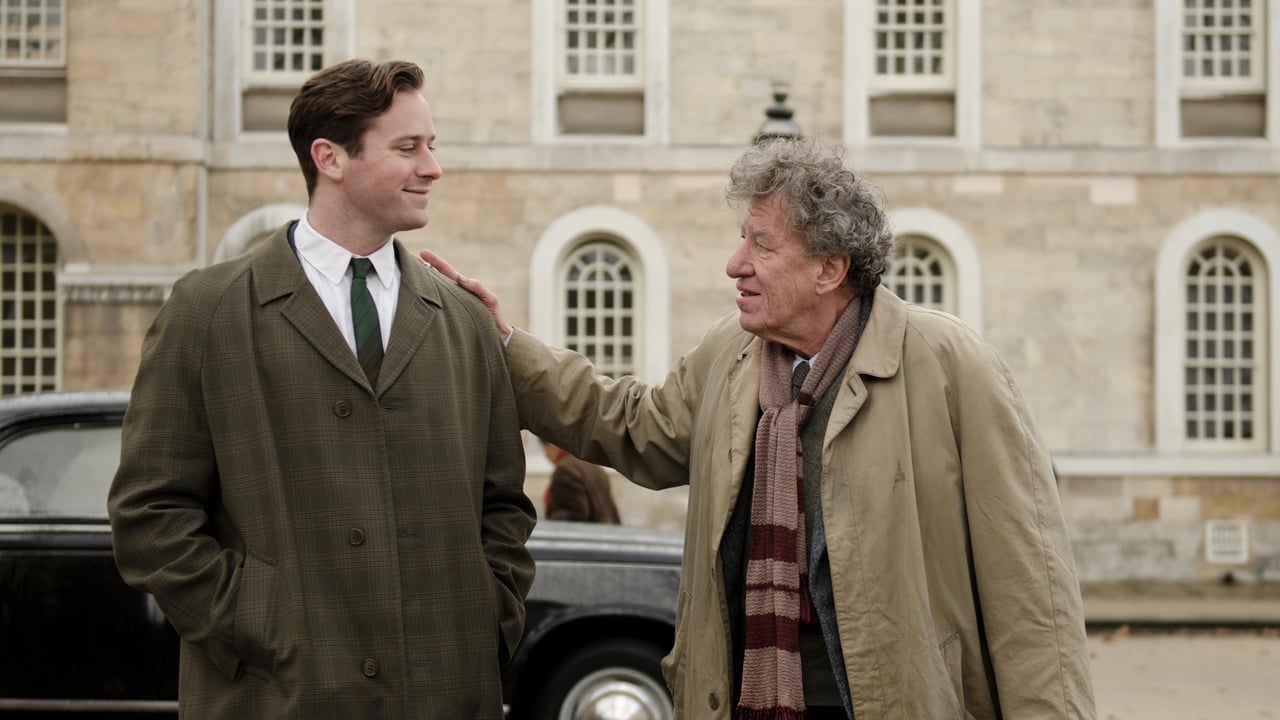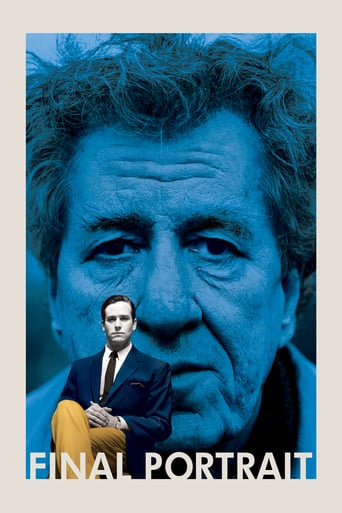Tockinit
not horrible nor great
Huievest
Instead, you get a movie that's enjoyable enough, but leaves you feeling like it could have been much, much more.
Taraparain
Tells a fascinating and unsettling true story, and does so well, without pretending to have all the answers.
Sammy-Jo Cervantes
There are moments that feel comical, some horrific, and some downright inspiring but the tonal shifts hardly matter as the end results come to a film that's perfect for this time.
gradyharp
Stanley Tucci adapted James Lord's memoir and directs this vantage into the life of one of the great artists of the last century - Alberto Giacometti. A strong cast brings life into this rather tedious and repetitive tale - but the material, though interesting, becomes indulgent. The film is based on a true experience as documented by actor/author James Lord in his book 'A Giacometti Portrait'. The time - 1964 - and while on a short trip to Paris, the American writer and art-lover James Lord (Armie Hammer) is asked by his friend, the world-renowned artist Alberto Giacometti (Geoffrey Rush), to sit for a portrait. The process, Giacometti assures Lord, will take only a few days. Flattered and intrigued, Lord agrees. So begins not only the story of an offbeat friendship, but, seen through the eyes of Lord, an insight into the beauty, frustration, profundity and, at times, downright chaos of the artistic process. FINAL PORTRAIT is a portrait of a genius, and of a friendship between two men who are utterly different, yet increasingly bonded through a single, ever-evolving act of creativity. It is a film which focuses on the artistic process itself, by turns exhilarating, exasperating and bewildering, questioning whether the gift of a great artist is a blessing or a curse. The others in the cast include Giacometti's wife (Annabel Mullion), his prostitute Caroline (Clémence Poésy), his brother Diego (Tony Shaloub) and Pierre Matisse (James Faulkner). Geoffrey Rush and Armie Hammer are excellent and the film, though very slow, is worth watching for the realistic reconstruction of the art of making art.
lonely-chaotic-soul
I watched the film a while ago and honestly I remember everything except the end. There's nothing much to remember about the film because the artist always stays in his studio painting and repainting. The whole film, however, resembles an experience I went through recently with someone moody I didn't really get along with (I was the writer and she was the artist) and I left her unsatisfied. Maybe that's why the end seems blurry to me.
Machiavell
I'm not saying that it was bad movie, but it ultimately failed to keep me watching it. After 2/3 of the movie I quit watching and it was indeed a good decision for me, as it bored me quite much. Unfortunately I wasn't familiar with the portrayed painter at all, but I not feeling that I want to know more about him.
Kirpianuscus
A good one. and the basic motif is Geoffrey Rush who - not surprising - gives the expected Giacometti. the big problem - the fear of Stanley Tucci to make a portrait. only lines. only a decent and seductive sketch. who offers to the viewer many ways for imagine a better film. sure, it is a good invitation for discover the art of a great artist. but the relation between artist and his model is so fragil than nothing does the film more than a good first step. it is the film of Geoffrey Rush. a good thing. but, maybe, not enough.because the force of performance, the try of Armie Hammer to give substance to his character are only shy circles from a large show.

